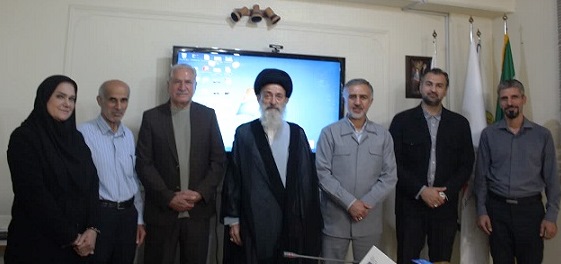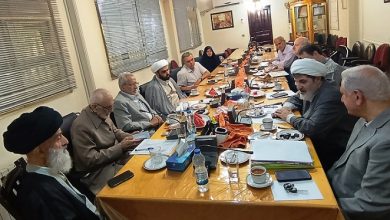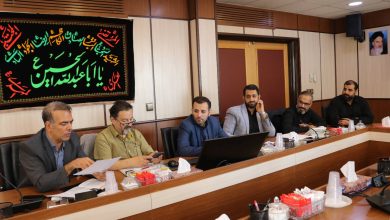Dr. Seraj Visits “Nafas Pak” Educational Center and Stresses Nationwide Implementation of the “PAD” National Plan in Schools

Dr. Mohammad Seraj, Member of Parliament representing Tehran, emphasized the necessity of nationwide implementation of the “PAD” (Prevention of Tobacco Use) national plan by the Ministry of Education during a joint meeting with the Iranian Anti-Tobacco Association (IATA) and a visit to the “Nafas Pak” (Pure Breath) educational center, which had been coordinated earlier by the Women’s Unit of the Association.According to the Public Relations Office of IATA, on Sunday, September 13, Dr. Seraj visited the “Nafas Pak” center and was briefed on its educational and cultural activities.
Following the visit, a joint session was held with the participation of Dr. Seraj; Hossein Shorvarzi, advisor, lecturer, and researcher; Ayatollah Seyed Hassan Moein Shirazi, Chairman of the Board of Trustees; Dr. Mohammad Reza Masjedi, Secretary-General of IATA; Dr. Sharif Torkaman Nejad, Scientific Advisor; and Ali Ata Taheri, Executive Director of the Association.
While acknowledging the effective role of the Association, Dr. Seraj described the PAD program as a significant initiative to safeguard the younger generation from the harms of tobacco use. He stressed:
“The PAD plan must be officially announced and implemented in all schools nationwide as a national program. This successful experience should be expanded to all provinces, and I will personally pursue its implementation at the national level.”
He further highlighted the importance of synergy among civil society organizations, charities, and executive institutions in achieving this national goal.
During the session, Ayatollah Shirazi underlined the gateway role of tobacco use in leading to drug addiction, noting that many individuals start with a single offered cigarette. He emphasized the effectiveness of the PAD program in teaching refusal skills (“saying no”) to prevent youth initiation into smoking.
He also pointed to statistics showing that while 11–14% of the general population use tobacco, this figure rises to more than 86% among prison inmates. Furthermore, he underscored the key role of parents in preventing children from smoking, as also emphasized by the Ministry of Education, stating that PAD could serve as a valuable tool in this regard.
Dr. Masjedi, Secretary-General of IATA, identified tobacco use as the leading risk factor for five major causes of premature mortality, including cardiovascular diseases, cancers, chronic respiratory diseases, and diabetes. He stated that tobacco control could reduce one-third of cancer cases. He also stressed the urgent need to raise tobacco taxes, noting that while many countries have successfully curbed consumption through this policy, implementation in Iran remains weak.
He added that approximately 20–22% of men and fewer than 4% of women in Iran smoke, but tobacco industry lobbies are increasingly targeting women and girls, partly reflected in the portrayal of female smoking in certain films.
Dr. Torkaman Nejad, Scientific Advisor of IATA, emphasized the continuation of the “Forty PAD” initiative already piloted in schools.
Additionally, Zahra Sadr, Head of the Women’s Unit, highlighted the health risks of tobacco use across different stages of women’s lives—including pregnancy, childhood, youth, middle age, and old age. She noted that women and girls, whether as direct users or passive recipients of second-hand smoke, remain among the most vulnerable victims of the tobacco industry.





